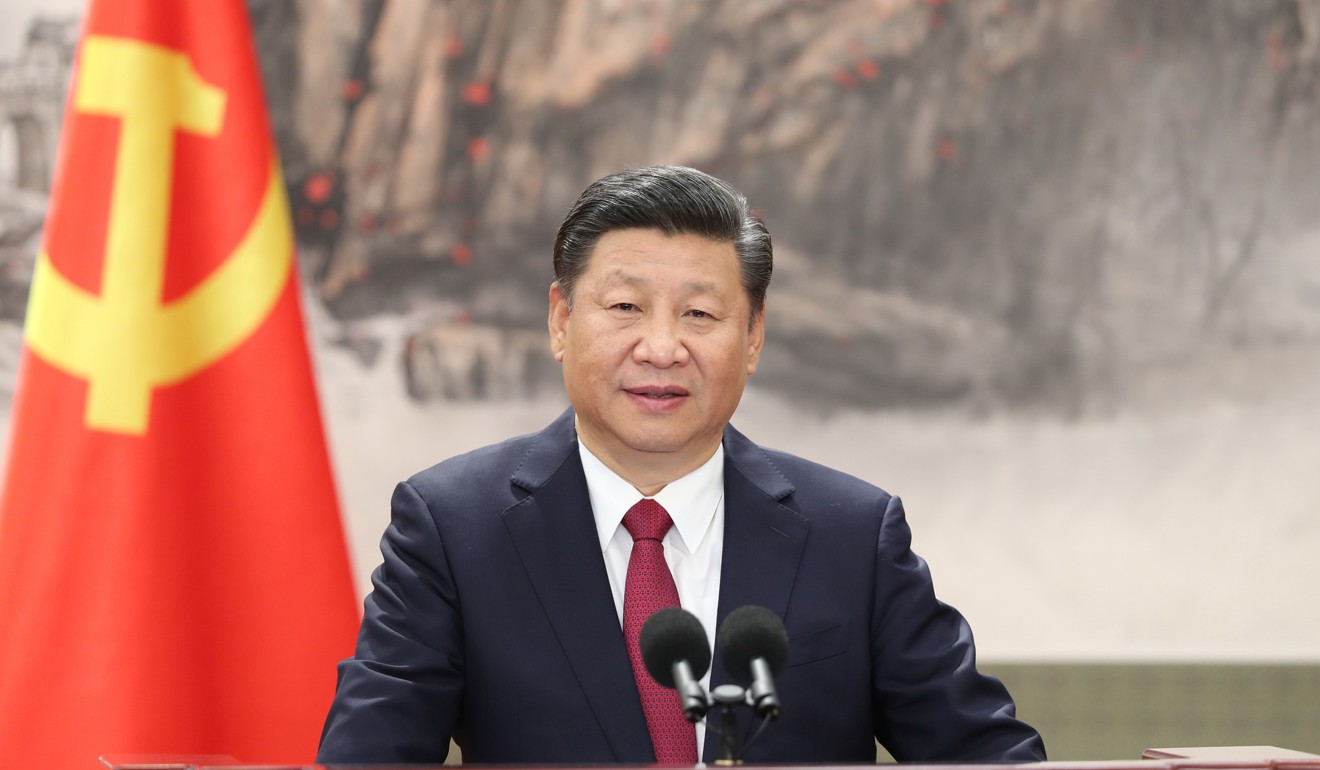
China unveils bold overhaul to tighten Communist Party control
Party will have more authority over economic and foreign affairs and cultural policies, but analyst warns it could take the country backwards
Beijing on Wednesday unveiled a massive plan to further assert the Communist Party’s control over economic and foreign affairs, cultural policies, and the appointment and training of cadres.
While the central government is restructured every five years after each term of cabinet, major overhauls of the party organs are rarely seen.
The move was made public by state-run Xinhua a day after the largely ceremonial legislature concluded its annual meetings. It is part of a shake-up that will also see a cabinet restructure that was announced last week.
The party’s influence has grown under President Xi Jinping, in line with his slogan “the party leads everything”, reversing past practice of leaving policy implementation to the state.
Four of the party’s “leading groups” – on financial and economic affairs, cybersecurity, reforms and foreign affairs – have been upgraded to become commissions.
“The purpose is to strengthen the party’s concentrated leadership in major affairs that concern the party and the state,” according to the statement.
All four of those groups are chaired by Xi, and the reforms and cybersecurity bodies were set up after he took the party’s top job in 2012.
“These leading groups were more like a temporary arrangement, and the commissions will obviously have a higher authority,” said Li Tuo, a politics professor at the Chinese Academy of Governance, the central government’s top institute.

The party has a network of these groups overseeing its most important issues, ranging from law enforcement and economic affairs to the restive regions of Tibet and Xinjiang, and Taiwan affairs.
While most of them have been referred to as leading groups, only one was a commission before Wednesday’s announcement – the National Security Commission, which is also chaired by Xi.
Aside from the upgrades, some party agencies will also take responsibility for offices that were previously under the State Council, China’s cabinet.
The offices in charge of religious and overseas Chinese affairs now fall under the United Front Work Department, responsible for overseas liaison work. The State Ethnic Affairs Commission will also report to that department.
Beijing is also merging the Chinese Academy of Governance with the Central Party School.
It will set up another two party commissions that will oversee ministries with almost identical functions. To establish an “authentic and effective” audit system and strengthen supervision, it will create the Central Audit Commission above the cabinet-level National Audit Office.
Likewise, a central education body will be created over the education ministry, aimed at improving political education in schools and universities, among other tasks.
Beijing-based political commentator Zhang Lifan said the overhaul would help the party to consolidate its control.
“It will be good for the party to cut its operating costs and increase efficiency by merging offices with overlapping functions,” Zhang said.
“Dismantling the interest groups and rebuilding a new order will also help to better enforce the will of Zhongnanhai,” he said, referring to the compound where Chinese leaders live and work.
But he warned that the move would ultimately take China’s efforts to modernise backwards.
“They are all aimed at further consolidating one-party rule … but that’s the opposite direction of modernisation – it’s not the typical path taken by a modern country,” he said.
The plan will also see the State Administration of Civil Service absorbed by the party’s much larger personnel organ, the Central Organisation Department. That department will now be in charge of international communication by civil servants, according to the statement.
On the ideology front, the State Administration of Press, Publication, Radio, Film and Television will be merged into the party’s propaganda unit, the Central Publicity Department, and its remit will be expanded to include the import and export of film and publications.
Politics professor Li said the shift reflected Beijing’s growing confidence in the party’s status, even on the global stage.
“China used to follow in the footsteps of the West, but now it’s more confident and doesn’t believe that it has to do certain things via the government.”
But he was not concerned that blurring the line between party and state could result in an over-concentration of power, saying Beijing’s rationale for the reforms was partly to avoid a situation like the collapse of the Soviet Union.
“The Soviet collapse was caused by the separation of the party and the state,” Li said. “The West’s notion of separation of power is not always a good idea.”

